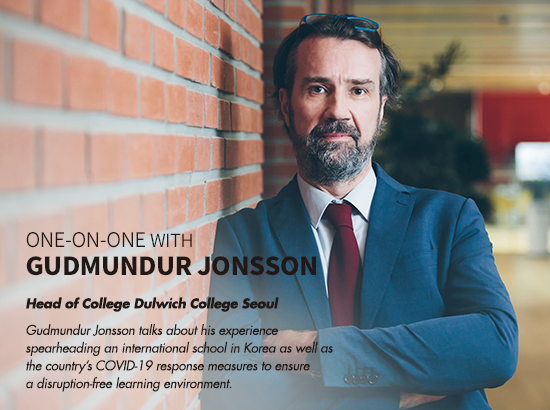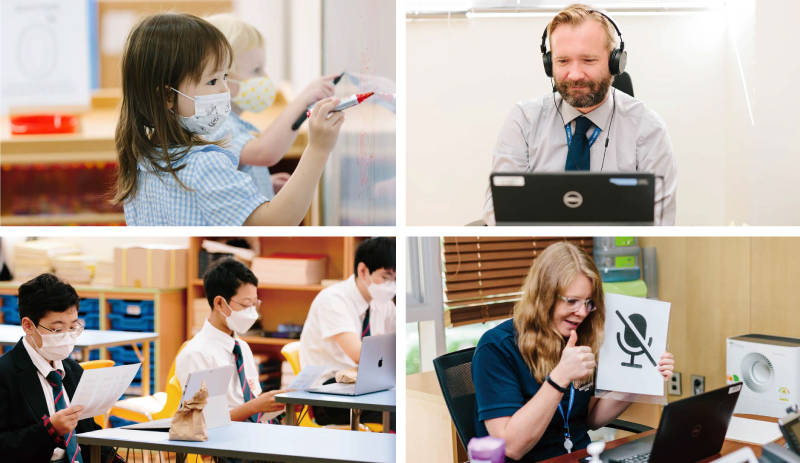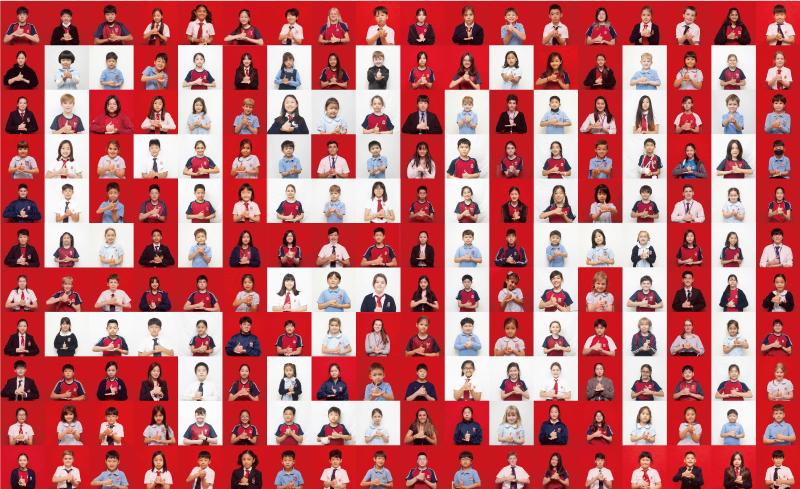Feature Stories
- Home
- Why KOREA
- Feature Stories

ONE-ON-ONE WITH Gudmundur Jonsson, head of Dulwich College Seoul
Dulwich College is one of the oldest independent schools in the UK, founded in South London as a boys’ school in 1619. Dulwich College International (DCI) was established to bring the Dulwich education to students around the world and is now one of the fastest growing UK independent school networks. In 2010, Dulwich College Seoul (DCSL) opened its doors as the fourth to join the DCI family of schools. The College is made up of 700 students from age 3 to age 18 from over 40 different countries.
Earlier this year, Gudmundur Jonsson was appointed new head of college of DCSL after his time as Rektor (Principal) of the United World College Red Cross Nordic in Norway. Originally from Iceland, Jonsson grew up travelling the world with his parents and siblings.
Jonsson studied archaeology at University College London (UCL) and the University of Sheffield, and directed numerous research excavations for UCL, the National Museum of Iceland and University of Cambridge, focusing mainly on the Medieval and Viking Age.
Based on his love of music, he also studied at the Reykjavik Academy of Singing and Vocal Arts and the Royal Academy of Music, London as a bass vocalist. He later moved to Belgrade, Serbia where he started teaching music at an international school. He recounts this time as a turning point which has led him on a new pathway as an educator, and he says he hasn’t looked back since. Along the way, Jonsson has lived in Italy, China and the United Arab Emirates in a diverse range of educational settings with his wife Katarina and their two children.
In the interview, KOTRA Express covers more on Jonsson’s experience living and working in Korea, the country’s education environment and how it is handling the COVID-19 pandemic to ensure that learning is uninterrupted.
How did you become interested in Korea?
I have long known of the Dulwich family of Colleges during my time as an educator, having had several friends and colleagues who have worked for various schools across Asia. All of them speak very highly of their experiences and of the deep-rooted commitment to education that is evident across the family.
When I saw the Headship advertised for the College in Seoul, it was immediately attractive, not only in terms of the school but also having the opportunity to go back to East Asia—a part of the world I have always had a fascination for. I was fortunate in being invited to Seoul and to the College as part of my final interview and was hugely impressed by the city and the College.
What about Korea’s history/economy/culture appeals to you the most?
I am fascinated by the history of Korea and the fast-paced, dynamic changes this country has undergone over the last century, particularly over the last seven decades. It is nothing short of remarkable how fast the country has moved during this time, and it is easy to forget how recent these changes have been.
Seoul is so organized, clean and safe, with a public transport system that most European cities would be immensely jealous of. Korean food is also very dangerous for my waistline! I love the combination of flavors, textures and colors. Being an educator, I am also keen to learn as much as I can about the Korean education system and the Confucian philosophy that has been an important force in shaping Korean culture.
What are some advantages of Korea’s education environment for international schools like Dulwich College?
I can see that Korean families are passionate about education, and there is a deep-rooted respect for the teaching profession. This is refreshing, particularly when you think about the ways in which education seems to have lost some of its importance in many other parts of the world. I have also been very impressed and thankful for the generosity and warm welcome extended to us from all of the people we have met in Korea.
As Head of College, I can see that it is relatively easy to attract high caliber staff to this environment. Korea has so much to offer. As someone who likes the outdoors, Seoul has a diverse range of green spaces that are carefully managed—there is a high degree of care and investment in these public spaces in the city. We also cannot wait to explore the mountains, beaches and islands of Korea.
As an educator, I can see challenges in this context given the pressures some families place on their children to succeed. This can adversely impact the mental health and wellbeing of young people. It is crucial that educators work together with their communities to engage in respectful and mutual dialogue about what is of value in education and the ways in which success can be defined.
Do you work with any Korean gov’t agencies, businesses, chambers of commerce, etc. to expand your partnerships?
The College works closely with the educational authorities in ensuring that it operates closely in accordance with all requirements and regulations. We have developed relationships with and supported many chambers of commerce over the years. These relationships are important, not only in maintaining a high profile for the College, but also in developing educational opportunities for our student community and providing community engagement for our families and staff.
We are always on the lookout for new, innovative and exciting opportunities and building new relationships. We are fortunate in having developed world-class facilities on our campus and are always looking at ways in which we can engage with our local community so that these facilities can be fully utilized.
What sort of support do international schools want from Korea?
International private education is highly regulated in the Korean context and we would like to be able to offer our educational experience and expertise to a wider audience. Global education research undertaken over the last two decades has provided evidence to show that a liberalization of education expands choice, improves quality and drives healthy competition and innovation.
As an international school, we have much to offer given our focus on holistic education, innovation and creativity. We are also keen to develop relationships with schools across Korea and to engage with and learn from Korean educators.
Would you consider Korea a safe place for foreign schools to operate, particularly now amidst the COVID-19 pandemic? If so, in what ways?
Absolutely yes! Seoul is one of the safest, cleanest cities I have ever lived in. The way in which the pandemic has been managed by Korean authorities is simply extraordinary.
It has been fascinating to see how Korean society was so quick to adopt the universal wearing of facemasks, with hand sanitizers on every corner. And to think that facemasks are still being debated in some other parts of the world...

Teachers and students engage in online learning as part of social distancing measures following the coronavirus outbreak. (Photo provided by Dulwich College Seoul)

“Students take part in the "Thank You Challenge" to express appreciation for the hard-working medical staff amid the pandemic. (Photo provided by Dulwich College Seoul)
A central focus of the Korean gov’t’s Digital New Deal policy is making education digital—this entails building a digital learning infrastructure in primary and secondary schools and promoting online classes for higher education and job training. In what ways have you seen this play out, especially as we’re currently striving to maintain an undisrupted learning environment in the middle of the pandemic?
The support and guidance the College has received from the educational authorities have been pivotal in guiding us through these challenging circumstances. We have received mandates from the authorities that have changed in accordance with the level of social distancing—this has meant having to operate a blend of online and face-to-face learning, and Korea’s IT infrastructure has made it effectively possible to do so.
To be fair, new ways of conducting teaching and learning have indeed presented challenges for our students, parents and staff, but it has been nothing short of remarkable to see how this has pulled our community together and made it stronger. It is also clear that these management strategies as devised by the authorities have been carefully constructed in keeping our communities safe.
By Grace Park
Executive Consultant
Investment Public Relations Team / Invest Korea
Korea Trade-Investment Promotion Agency (KOTRA)
gracepark@kotra.or.kr










